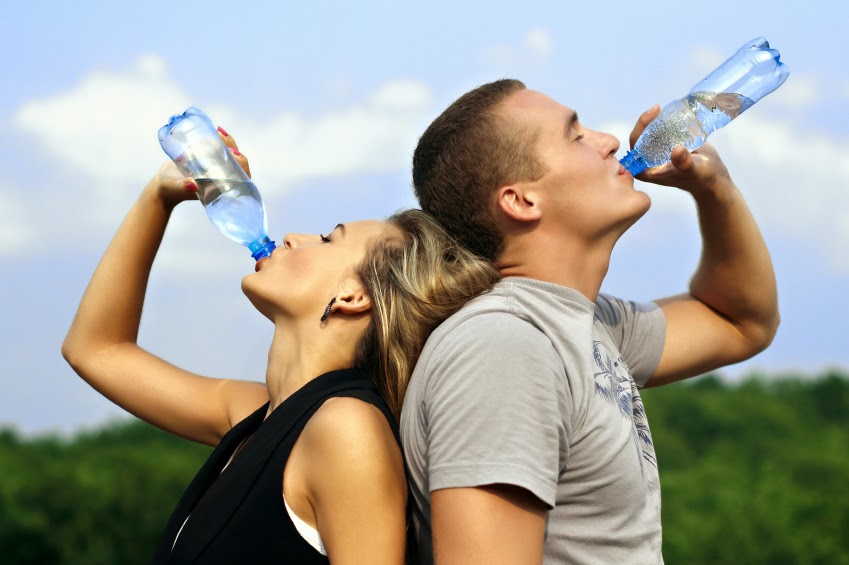Water Down & Drink Up
High quality protein. Disease-fighting antioxidants. Essential vitamins and minerals. Fiber. Many people do a great job of making sure they get adequate amounts of these essential nutrients. What often slips through the cracks, however, is a basic nutrient without which none of the previously mentioned nutrients would work: water.
When they hear of dehydration, most people think of marathon runners collapsing as they struggle toward the finish line. For example, more than 2,100 runners were treated for dehydration at the 2012 Boston Marathon. Although these are true cases, they aren’t the only cases. Dehydration can occur in all age groups, including children and the elderly, and in all types of weather conditions.
The Body’s Water Supply
We all know water is important. Water is a basic part of blood, digestive fluids, urine, perspiration, and found in bones, fat, lean muscle tissue, and the brain. It helps oxygenate the body, digest, extract, and deliver nutrients from food, and eliminates toxins.
Unforunately, as important as water is, it’s all too easy to become dehydrated. The body does not store it. In addition, we lose water from our lungs, skin, urine, and other bodily processes. Most adults lose about 2.5-3 liters of water each day, with an active adult’s water loss being on the higher end. Even a three-hour flight can cause up to 1.5 liters of water loss due to the dry air conditions of airplanes. Clearly, we need a steady supply of water every day.
Listen to Your Body
Your body will show signs of dehydration inside and out. Constipation and dehydration can go hand in hand. Water helps waste move more quickly throughout the colon. Without adequate water, even a high-fiber diet will not help relieve constipation. Stiff or painful joints can also be caused by dehydration because the cartilage that protects them is mainly made up of water.
Dehydration can even cause dull, dry, and wrinkled skin. Bodily functions and enzymatic processes slow down leading to fatique and tiredness. Dehydrated individuals even have higher cholesterol levels in their blood. A dehydrated body leaves the kidney and bladder more vulnerable to infection and inflammation.
Prevention is best. Drink water to prevent thirst, not to quench it. Try to avoid dehydration in the first place. To achieve water balance, the amount of water intake should match the amount of water excreted. For a healthy adult, this usually requires 2-3 liters of water each day. Your body will let you know if you’re optimally hydrated. Clear to nearly clear urine at least once every 24 hours indicates adequate hydration.
Signs of dehydration include thirst, headaches, mood changes, dry lips, dry nose, dark urine, lethargy, weakness, slow responses, confusion, or hallucinations.
Tips for more sips:
-If water bores your taste buds, add a squeeze of lemon or lime juice to plain water, or a scoop of Greenergy!
-Always have a full bottle or glass of water handy (in your bag, on your desk, etc)
-Make ice cubes with fresh mint or fresh fruit and add them to your water
-Drink a scoop of Greenergy with a scoop of ProEnergy protein powder (all 3 flavors go great with the Greenergy) throughout the day to stay hydrated and keep trickling those essential nutrients into your system all day long.
